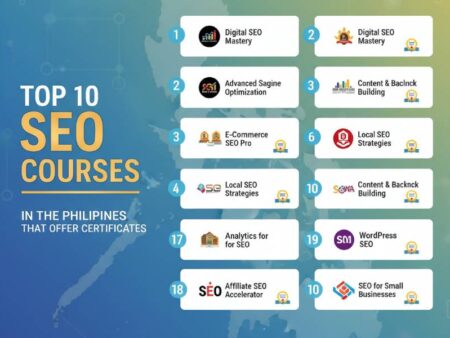
In the ever-evolving world of search engine optimization, there’s a controversial strategy that continues to intrigue black-hat and gray-hat marketers alike: Parasite SEO. It’s a tactic that exploits the high authority of trusted platforms to rank content that would otherwise struggle to gain visibility, especially content that’s affiliate-driven, low quality, or outright spammy.
Let’s explore what Parasite SEO is, how it works, what platforms are commonly used, the ethics and risks involved, and examples of how marketers leverage this technique for rapid SERP (Search Engine Results Page) domination.
What is Parasite SEO?
Parasite SEO is the practice of publishing content on high-authority third-party websites—often user-generated content platforms—with the intent to leech off their domain authority to rank highly in Google search results. The term “parasite” comes from the nature of the tactic: the content creator doesn’t own the platform but uses it as a host to get better search rankings.
These pages can often outrank traditional websites due to the trust and link equity that sites like Medium, Reddit, and Google Sites have with Google.
Why Parasite SEO Works
The reason Parasite SEO works so well is simple:
Google prioritizes domain authority and trustworthiness in its ranking algorithm.
Websites like Medium.com, Google Sites, Reddit.com, LinkedIn.com, and even Microsoft’s Blogspot domains have domain authority (DA) scores of 90 or higher. When you publish content on these platforms—even if it’s thin, spammy, or keyword-stuffed—it often bypasses the usual ranking hurdles because the host domain’s authority carries the content.
Parasite SEO exploits this trust to:
- Rank faster than traditional websites
- Bypass sandbox or trust-building periods
- Promote affiliate or CPA (Cost Per Action) offers
- Funnel traffic to money pages
- Generate leads or email signups without running paid ads
Common Platforms Used for Parasite SEO
Here are some of the most popular platforms where parasite SEO thrives:
1. Medium.com
- Easy to publish articles.
- Ranks quickly.
- Allows affiliate links (though they may be nofollowed).
- Great for long-form content and product reviews.
2. Google Sites
- Free to use.
- Hosted by Google, giving it instant trust.
- Allows embedding of links, forms, and affiliate offers.
3. Reddit.com
- Massive traffic potential.
- Comment sections and posts often get indexed fast.
- It can be risky: community rules are strict.
4. Quora.com
- Great for question-based queries.
- Answers can rank in Google if keyword-optimized.
- Must blend value with promotion to avoid bans.
5. LinkedIn Articles
- Trusted business platform.
- Underused for SEO, but still a solid option.
6. SlideShare.net / Scribd.com
- Good for PDF-style content.
- Often used for lead magnets and call-to-action embeds.
7. YouTube.com
- Not text-based, but descriptions and titles can rank fast.
- It can be used to promote landing pages and affiliate links.
How Parasite SEO is Used in Affiliate and Spam Campaigns
Parasite SEO often goes hand-in-hand with affiliate marketing, particularly in niches like:
- Weight loss
- Gambling
- Crypto
- Loans and finance
- Make-money-online (MMO)
- Supplements and health hacks
Typical Workflow:
1. Identify Low-Competition, High-Intent Keywords
- , e.g., “Best keto pill for belly fat 2025” or “Betting app bonus no deposit USA”
2. Create a Keyword-Stuffed or Persuasive Article
- Usually 800–1500 words
- Includes exact match keywords
- Contains multiple affiliate links or redirects
3. Publish on High-Authority Domain
- Medium.com post, Google Site, or a Reddit thread
4. Blast with Backlinks or Social Signals (Optional)
- PBN links
- Blog comments
- Tiered Web 2.0 backlinks
5. Rank Quickly on Page 1
- Thanks to the host domain’s authority
6. Redirect or Funnel Users
- Through cloaked affiliate links
- Using bit.ly, rebrandly, or custom redirects
Real-World Example: Medium.com for Affiliate SEO
A user creates an article titled:
“Top 3 Testosterone Boosters for Men Over 40 (Backed by Science)”
They fill it with comparison charts, vague “doctor-approved” language, and multiple calls to action to click “Get it now” links. These links lead to affiliate pages or CPA offers, earning commissions on every sale or lead.
Despite being thin content, the post ranks on Page 1 because:
- It’s on Medium.com (DA 95+)
- It uses long-tail keywords
- There’s little competition for that exact phrase
Within a few days, the page generates organic traffic and passive income—until Medium catches on and removes it (if ever).
Benefits of Parasite SEO
While controversial, Parasite SEO does have appealing benefits:
Fast Rankings
High-authority sites are indexed frequently and trusted by Google, leading to quicker appearances in SERPs.
- No Need to Build a Website
- Perfect for marketers who want results without building or maintaining a domain.
Low Cost
- You don’t need hosting, a designer, or even premium tools—just content and a strategy.
- Bypasses Sandbox
- New sites usually need 3–6 months to rank. Parasite pages can rank in 3–7 days.
Risks and Downsides of Parasite SEO
Parasite SEO may sound tempting, but it comes with significant risks:
Content Removal
Platforms can delete your content if it violates their TOS (terms of service), especially if it includes affiliate links, misleading health claims, or spam.
No Control
You don’t own the platform. Any algorithm change or policy update can wipe your content.
Brand Damage
Using this method for legit businesses can damage your brand if people view it as spammy.
Black-Hat SEO Backlash
Overusing backlink manipulation or spammy techniques may result in bans or account closures.
Short-Term Strategy
Parasite SEO is rarely sustainable. Once a page is flagged or competitors replicate it, the rankings can vanish.
Best Practices for “Cleaner” Parasite SEO
If you’re determined to explore this strategy with a more sustainable approach, consider:
1. Provide Value
Even if the goal is affiliate clicks, offer genuine advice, comparisons, or reviews.
2. Use Nofollow or Cloaked Links
To avoid tripping spam filters or triggering manual reviews.
3. Diversify Platforms
Don’t rely on just one parasite host. Spread across Medium, Google Sites, and Reddit for redundancy.
4. Avoid Making Outlandish Claims
Especially in health or finance. These trigger spam flags fast.
5. Backlink Gently
Parasite pages don’t need massive link blasts. A few social shares or niche-relevant links can be enough.
Ethical Considerations and Google’s Perspective
Google doesn’t explicitly prohibit user-generated content from ranking well in SERPs. However, manipulating SERPs using spammy tactics—even on trusted domains—is considered against their Webmaster Guidelines.
If enough spam appears on a domain (e.g., Medium or Reddit), Google may devalue the entire domain’s ranking power in certain niches, which hurts all users.
In 2023–2024, Google even began rolling out algorithm updates targeting parasite SEO tactics, particularly for health and finance-related content on user-generated platforms.
Conclusion
Parasite SEO offers a shortcut to page-one rankings without the need for building your authority website. By leveraging platforms like Medium, Google Sites, and Reddit, marketers can quickly rank content that might otherwise languish in obscurity.
But this power comes with strings attached:
- You don’t own the domain.
- Your content can be deleted at any time.
- You’re always one step away from a policy update killing your traffic.
If you’re in the affiliate space and looking for fast, low-cost rankings, Parasite SEO can be effective—but it’s best used in moderation or as part of a broader SEO strategy that includes white-hat efforts.
Frequently Asked Questions (FAQ)
What is Parasite SEO?
Parasite SEO involves publishing content on high-authority websites (like Medium or LinkedIn) to rank quickly in search engines. Marketers leverage these sites’ domain authority to boost visibility for competitive keywords, bypassing the need to rank their domain from scratch. It’s commonly used for affiliate and lead-gen campaigns.
Is Parasite SEO legal or ethical?
Parasite SEO is legal, but its ethics depend on usage. If content is informative and follows platform rules, it’s ethical. However, spamming, cloaking, or misleading users violates platform guidelines and can result in bans or penalties. Responsible usage is key to staying compliant and building long-term trust online.
Which platforms are commonly used for Parasite SEO?
Popular platforms include Medium, LinkedIn, Reddit, Quora, WordPress.com, and Google Sites. These platforms have strong domain authority, making it easier to rank for competitive keywords. Content marketers often choose platforms relevant to their niche and ensure content aligns with community standards for maximum reach and minimal risk.
How effective is Parasite SEO for fast rankings?
Parasite SEO can be very effective for quick rankings, especially for new or competitive keywords. Since the content resides on established domains, it often ranks faster than content on new websites. However, long-term success requires quality content, good keyword targeting, and ongoing monitoring to maintain and scale results.
Can Parasite SEO hurt your brand?
Yes, if misused. Low-quality or spammy parasite content can harm brand reputation and credibility. It may also violate the terms of service on host platforms, resulting in content removal. To avoid backlash, use Parasite SEO ethically: provide value, avoid clickbait, and maintain consistency with your brand’s messaging and image.
What Are You Waiting, Enroll Now!
Learn More!Subscribe to this Page
Average rating 5 / 5. Vote count: 367
Share on Social Media
Related Posts
- Private Blog Networks (PBNs): How Search Engines Identify Link Manipulation
- SEO Online Courses with Certificate in the Philippines
- Website Optimization: Simple Strategies for Beginners
- Spun Content Detection Algorithms and Google's NLP Models
- Why White Hat SEO Matters for Long-Term Website Success








